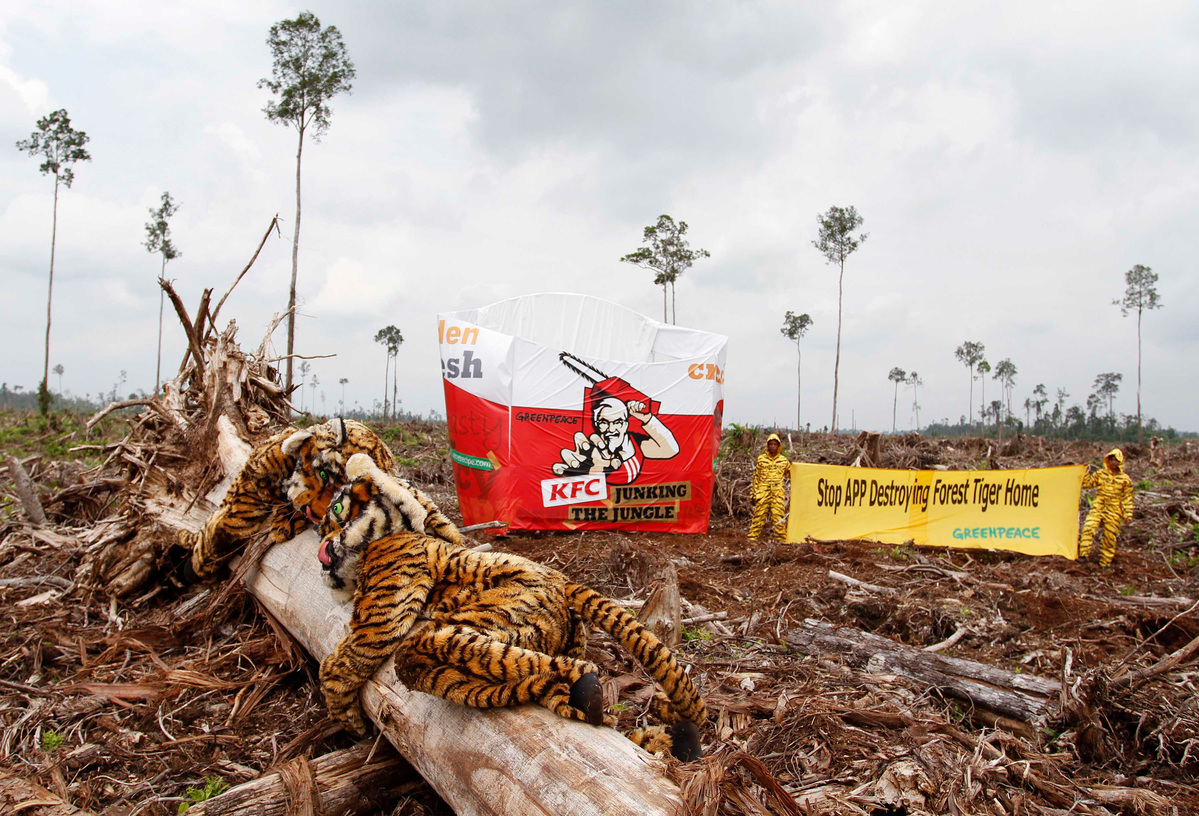6 Oct 2024 – As the region’s leaders chart the way ahead via ASEAN Vision 2045, it is imperative to ensure that human rights are at the forefront. We urge ASEAN leaders to develop and adopt a comprehensive ASEAN Environmental Rights Framework, one that ensures economic growth does not come at the cost of human rights with emphasis on the right to environment, including full recognition and protection for environmental human rights defenders and Indigenous Peoples, and accountability for perpetrators of human rights violations and environmental degradation, both state and non-state actors. A thriving economy should not be equated with a “dirty economy.” Moreover, based on the latest NDCs of the Member States, greenhouse gas emissions are projected to keep increasing until 2030, and most ASEAN Member States’ NDCs remain incompatible with the 1.5 degrees Celsius pathway. An inclusive ASEAN Environmental Rights Framework is essential for safeguarding the rights of Indigenous Peoples and local communities, who have lived harmoniously with nature for generations, playing a vital role in protecting biodiversity throughout the ASEAN region.
The path to realising this vision faces significant challenges. The current process for creating the ASEAN Environmental Rights Framework lacks transparency, with no publicly accessible official drafts or clear mechanisms for holding governments accountable or for including civil society participation. This lack of openness, transparency and accountability undermines the potential for a robust framework.
“The ASEAN region is home to diverse Indigenous Peoples who are at the forefront of combating the climate crisis through their sustainable ways of life and yet face multiple challenges brought about by imposed development in their territories. An ASEAN Environmental Rights Framework that recognizes Indigenous Peoples’ rights to their land and territories and to Free Prior and Informed Consent is much needed. The drafting and finalisation of the Framework should ensure the meaningful engagement of Indigenous Peoples.”, said Robie Halip from Right Energy Partnership with Indigenous Peoples (REP).
We note that as of March 2024 the draft ASEAN declaration on environmental rights included bracketed text calling for particular respect for the role of Indigenous Peoples. This important inclusion must not be removed from the final declaration.
“As a region, ASEAN can become a global pioneer in protecting environmental rights. These human rights are crucial in addressing the ongoing triple planetary crisis—climate change, biodiversity loss, and pollution. Our region is among the hardest hit by climate change impacts, and an environmental rights framework that holds big polluters accountable for loss and damages and calls for liability and redress for impacted ASEAN communities is paramount to help ASEAN countries mitigate and address the impacts of climate change,” said Rayhan Dudayev, Senior Regional Campaign Strategist (Legal and Political), Greenpeace Southeast Asia.
“Despite AICHR’s leadership in the regional process of developing the Declaration, FORUM-ASIA has monitored the document’s watering down, noting the removal of crucial elements related to the recognition and protection of civil society participation as well as the rights of Indigenous Peoples and environmental rights defenders. The process of developing the said document lacked inclusivity since inputs from civil society were apparently disregarded. Meanwhile, human rights defenders–including Indigenous Peoples’ communities–continue to face criminalization and intimidation for peacefully resisting irresponsible development projects. If ASEAN continues its wilful ignorance of the voices from the ground, the declaration will just become another document that’s out of touch with reality,” said Mary Aileen Diez-Bacalso, Executive Director of FORUM-ASIA.
As negotiations on the declaration continue among member states, it is crucial to reflect on the consequences of inaction. Across ASEAN, too many environmental defenders have been injured, forcibly disappeared or lost their lives while fighting to protect our shared environment. By 2045, we do not want to see a region where people suffer from worsening poverty and health conditions, increasing conflicts and limited living space due to climate change impacts, and biodiversity loss that stifles economic prosperity.
We hope that Malaysia will pave the way to and champion an inclusive ASEAN Environmental Rights Framework, as it prepares to host the ASEAN Summit in 2025. Malaysia has the opportunity to chart an ASEAN future where both people and the environment can thrive for generations. [ends]
Contacts:
Cornelius Damar Hanung
East Asia – ASEAN Programme Manager FORUM-ASIA,
[email protected]
Rayhan Dudayev
Greenpeace Southeast Asia
[email protected]
+62 811 1401 392
Robie Halip
Right Energy Partnership with Indigenous Peoples (REP)
[email protected]



